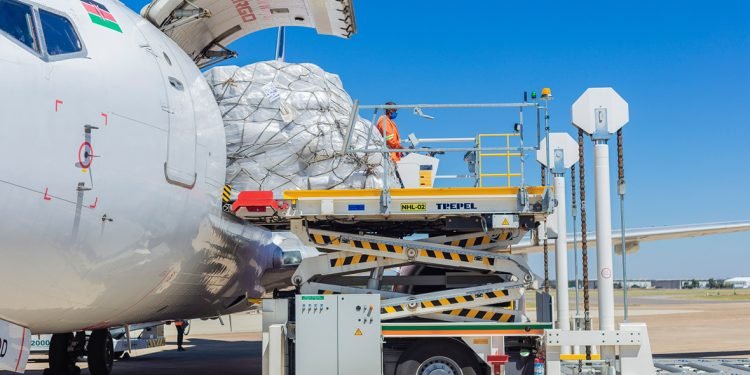By Maria Kalamatas | July 29, 2025
Nairobi, July 29 — A surge in flower and fresh produce exports bound for Europe and the Middle East is overwhelming air cargo terminals in Kenya and Ethiopia, forcing carriers and forwarders to scramble for additional lift.
“We’re moving volumes that rival peak holiday demand — but it’s still July,” said Samuel Mwangi, cargo operations director at Jomo Kenyatta International Airport. “Cold storage is maxed out, ground crews are stretched, and flights are booked solid for days.”
Export demand climbs sharply
European supermarkets are stocking up early on roses and cut flowers ahead of August promotions, while Middle Eastern buyers are rushing to secure fresh vegetables for high-demand urban markets. Export volumes out of Nairobi and Addis Ababa are up more than 25 percent year-on-year, according to regional trade data.
With ocean freight slowed by Red Sea security concerns, more shippers are relying on air to guarantee freshness and meet tight retail windows.
Logistics bottlenecks grow on the ground
At Nairobi, refrigerated trucks are lining up outside cargo facilities, waiting for customs clearance. Addis Ababa’s Bole International Airport is seeing similar congestion, prompting some forwarders to reroute loads through Kigali and Entebbe despite higher costs.
“For perishable exports, even a 24-hour delay can wipe out profit margins,” Mwangi said.
Carriers scramble to add capacity
Ethiopian Airlines and Kenya Airways have deployed extra freighters and converted passenger jets to handle the surge. But aircraft availability is tight, and forwarders report spot rates rising by nearly 20 percent over the past two weeks.
Some exporters are pooling shipments to secure priority loading, while others turn to charter operators despite premium costs.
Looking ahead to August
Industry players warn that pressure could intensify in the weeks ahead, with avocado and tropical fruit harvests adding to the flow. Forwarders are advising clients to book at least two weeks in advance to avoid being left without lift.
“If this pace continues, we could see one of the busiest late-summer export seasons on record for East Africa,” Mwangi added.





















